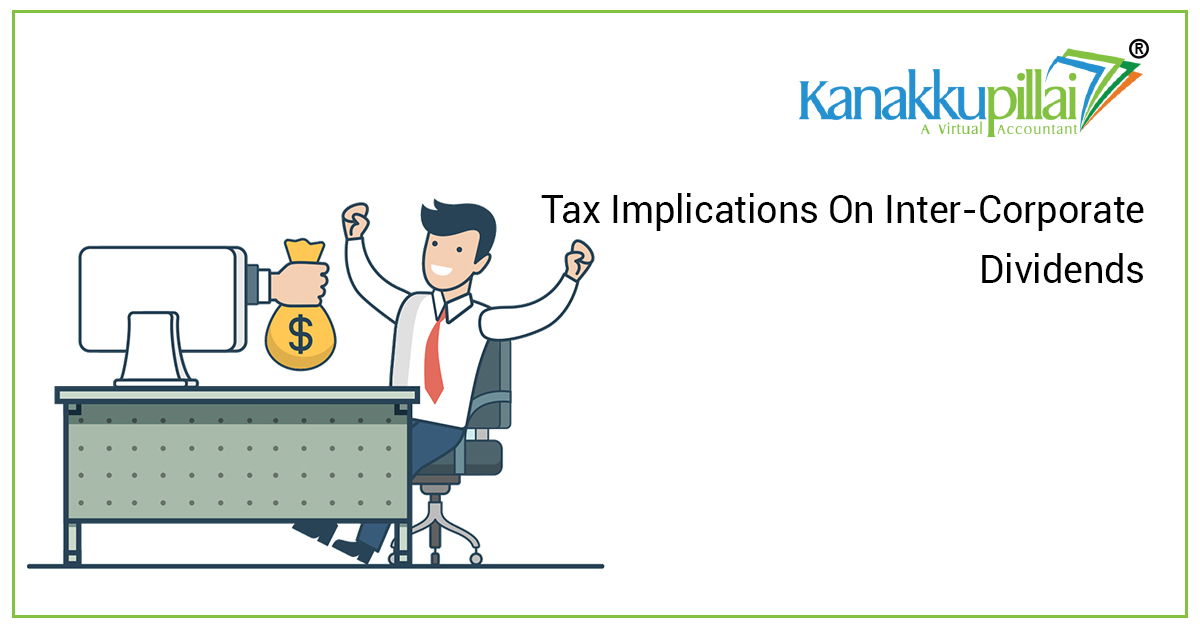The inter-corporate dividend is nothing but the dividend income earned by a company through its shareholding in another company, which particularly is a domestic company.
Taxability of Inter-Corporate Dividend until the Finance Act, 2019
Up to the Finance Act 2019, the inter-corporate dividend was taxable under different sections of the Income Tax Act, which have been listed below:
– Section 115-O (1), which states that any amount which is either declared, distributed, or paid by a domestic company in the way of a dividend, whether as interim/final dividend, shall be chargeable to tax at the rate of 15% on the gross amount and an effective rate of 17.65% as additional tax in the name of Corporate Dividend Tax (CDT) or Dividend Distribution Tax (DDT).
– Section 10(34) provides an income tax exemption to the shareholders with respect to the dividend income they earn.
– Section 115BBDA, any income by way of dividend declared, distributed, or paid by a domestic company more than ten lakh rupees shall be taxable at the rate of 10%.
It is to be noted that the provision of CDT or DDT did not apply to foreign companies, making the same taxable in the hands of the shareholders. So, if the domestic company receives any dividend income tax from a foreign company, then such income shall be taxable in the hands of the domestic company at the rate of 30%.
Domestic Company Receiving Dividend from Another Domestic Company
To eliminate the cascading effect of taxability of dividend income that arises when a dividend received by a domestic company from another domestic company is re-distributed by such receiving company to its shareholders, the Government of India has re-introduced an old section, namely 80M, under the Income Tax Act, as the same was eliminated due to the introduction of the CDT or the DDT.
Section 80M of the Income Tax Act
The provisions of section 80M state that;
Where the gross total income of a domestic company, in any previous year, includes any income tax by way of dividends from,
– any other domestic company, or
– a foreign company, or
– a business trust, which is known as a specified entity,
There shall, ibyand subject to the provisions of this section, be allowed in computing the total income of such domestic company, a deduction of an amount equal to so much of the amount of income by way of dividends received from such other domestic company or foreign company or business trust, as does not exceed the amount of dividend distributed by it on or before the due date.
It is to be noted that the due date here is one month before the due date under section 139(1) for furnishing of return of income, as per the explanation given in the section.
Thus, it is to be understood that when a domestic company receives earnings or income in the form of dividends from another domestic company in which it is holding shares, the same shall stand taxable in the hands of such receiving company due to the omission of CDT or DDT as per section 115-O (1). However, when the receiving company redistributes this dividend income to its shareholders, the same dividend income becomes taxable again in the hands of these shareholders, bringing in a cascading effect or double taxation.
To eliminate such a cascading effect, section 80M was reintroduced. It provides a chance for a receiving company to deduct the re-distributed dividend income from its total income, provided such distribution is made before the due date, which here is one month before the due date for furnishing the return of income specified under section 139(1) of the Income Tax Act.
For example, A Ltd. has a shareholding of 10% in B Ltd., both of which are domestic companies. During the FY 2020-21, B Ltd. declared a dividend of INR 10,00,000 and paid A Ltd. with INR 1,00,000 dividend as per their shareholding. A Ltd. re-distributed INR 80,000 of this dividend income to its shareholders on 30th July 2021. As the due date for furnishing the income tax return for A Ltd. is on 30th of September 2021, we can say that A Ltd. has made the re-distribution before the due date specified under section 80M, which is 1 month before the due date as per section 139(1). Thus A Ltd. can now claim a deduction of INR 80,000 from its total income by 80M, whereby the rest of the dividend income earned, i.e., INR 20,00,0, shall now be taxed in the hands of A Ltd. as the same was not re-distributed by the company to its shareholders.
Domestic Company Receiving Dividend from Foreign Company
When a domestic company earns dividend income from a foreign company, in which the domestic company has an equity shareholding of 26% or above, the same shall be taxable under section 115BBD at the rate of 15% plus surcharge and health and education cess. Here, no deduction shall be allowed and will be computed on the gross amount.
In case of a dividend received by the domestic company from a foreign company in which its shareholding is below 26%, the same shall be taxed at normal rates, and the domestic company can claim deductions for any expense incurred by it to earn such specified dividend income.
Hence, we can now say that section 80M, which was re-stated by the Finance Act of 2020, eliminated double taxation or the cascading effect of taxation.





